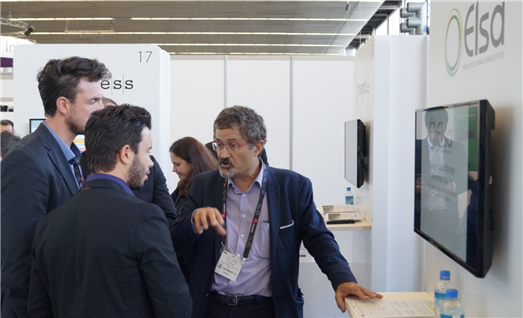ELSA at European Utility Week 2017
The European Utility Week summit and exhibition is one of the main events on business, innovation and information relating to the subject of energy. The EUW brings together experts from utilities, network operators, vendors, consultants, start-ups, and system integrators covering the entire smart energy value chain.
This year, the ELSA team participated at the European Utility Week at the joined exhibition booth of the Bridge H2020 initiative. Interested visitors were able to learn more about the ELSA battery energy storage system and its six pilot sites across Europe. Additionally, Nicholas Schottey, EV Deputy Program Director, Battery & Infrastructure at Renault presented at the EUW summit during the Plenary and Innovation Hub Programmes. His talk focused on electrical mobility as a booster for the energy transition and new areas of business that could generate additional value, such as second life battery use for local storage applications. Visitors of the EUW were also able to experience first-hand what driving a Renault Zoe and Kangoo feels like – at the free test-driving organized by Renault.
Further, Ludwig Karg, Managing Director of B.A.U.M. Consult, held a presentation on how ELSA brings distributed storage solutions to maturity. The project’s objective is to enable their integration into the energy system and their commercial use. ELSA addresses existing development needs by combining 2nd life batteries with an innovative local ICT-based Energy Management System in order to provide a low-cost, scalable and easy-to-deploy battery energy storage system. Decentralised small- and medium-size energy storage systems provide much greater operating flexibility than today’s energy systems. They ensure a reliable energy supply for buildings and districts and thus enable the integration of a high share of intermittent renewable energy sources. Some storage solutions are technically mature and economically viable at this stage, but the potential of energy storage is far from being fully exploited. The availability of systems based on 2nd-life batteries has clear ecologic and potentially economic advantages and widens the field of viable storage solutions.
The presentation focused on the potential role of such storage solutions focusing amongst others on use cases, business opportunities, and environmental benefits especially on local grid level.



